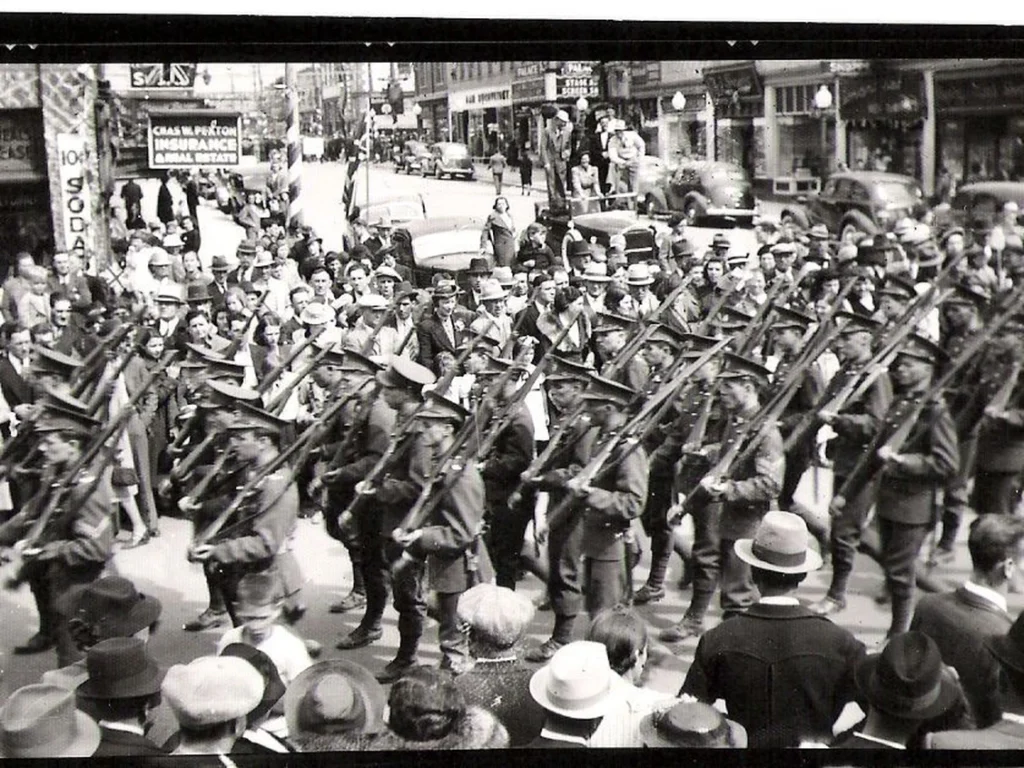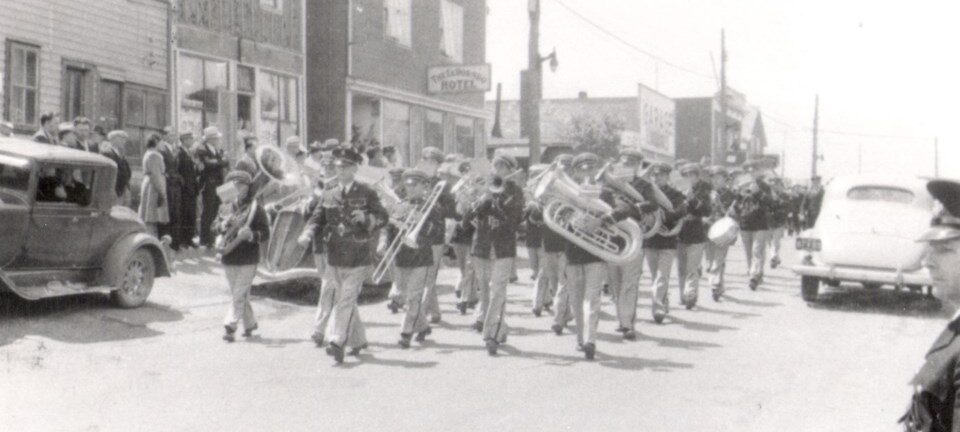
May 8, 1945 – Victory Europe Day – this year marks the 80th anniversary of the end of the Second World War in Europe. After nearly six years of brutal conflict, many celebrated the end of total war, but all were conscious that the fight was not yet over in the Pacific.
Millions across Europe had died, homes and cities were destroyed. But shortly after the official announcement had been made, people celebrated with street parties plus lots of singing and dancing. Celebrations in Britain were huge — even Princesses Elizabeth and Margaret got to slip out of the palace (with the King’s permission) and party with the people, incognito.
In Canada, there was just as much relief and excitement. Toronto organized events in nine of their main parks; the Liquor Authority Control Board, however, was quick to say that no wine or beer could be sold on the celebration days. Churches remained open day and night to allow parishioners to give thanks, stores, war plants and businesses closed early on May 8 and remained so as well on May 9, when many of the parades and events would take place. Of course, Timmins was no different, and the community was ready to party.
A parade organized by George Nippers was hailed as the “best ever” in the town of Timmins. Leaving from the ball park, the procession wound its way through the downtown and included floats and marchers from all ethnic groups in the community. The local fire department, along with members of the Algonquin Regiment and the air, sea and school cadets, added a degree of military precision to the affair. Members of the local Mine Mill and Smelter Workers Union made an impressive showing. Legion members, school children, church groups, service clubs, fraternal organizations and bands also participated, leaving you to wonder who was left on the sidelines to watch! Once the procession had made its way through town, they rallied at the Hollinger Park, where the dignitaries took over. Speeches were delivered by Mayor J.E. Brunette, Al Wetmore, president of the Legion, Rever. Father O’Gorman and councillor Bill Roberts, chairman of the Victory Loan committee. Community singing and music took over in the park, and the residents were treated to a huge display of fireworks, put on by the fire department.
In South Porcupine, it was reported that “the news of the cessation of war in Europe was received with no jubilant manifestations of relief. Many rejoiced through tears.” With the announcement, the fire siren was sounded, and all the churches rang their bells. People gathered in the streets, but there was no shouting or “hat throwing”; residents were subdued and remembered “the boys who will never return and those who will return bearing the scars of honourable wounds received in battle.”
Churches were overflowing with people who gave thanks for the end of what was a brutal conflict. By the next day, however, residents joined a huge parade to the South Porcupine ball grounds. Members of the Goldfields Band were in the lead with veterans, cadets, clubs and groups bringing up the rear. New Canadians joined in the celebrations and wore their national costumes with pride. At the end of the parade, speeches were delivered by dignitaries and churchmen, followed by an impressive fireworks display.
Schumacher, too, held celebrations that included a parade that started at the public school and ended on the main street at the churches. A larger parade was held the next day, led by the McIntyre Band and the groups and clubs from the community. They enjoyed a night of fireworks and general merriment.
After all of this, a sobering message was printed by the editor of the Porcupine Advance reminding people that it was not yet over. “It should be well for the people in general to look on the celebrations that have occurred as simply celebrations of battles as it were – simple stages on the path to victory. With these battles now celebrated, all should turn again to the real winning of the war – the final winning of the war – the complete crushing defeat of the Axis powers – the re-establishment of nations so grievously oppressed – and the punishment of those responsible.” The community would have to wait until Sept. 2, 1945, for the complete end of the war.
“We’ll meet again/Don’t know where/ Don’t know when/But I know we’ll meet again some sunny day…”

